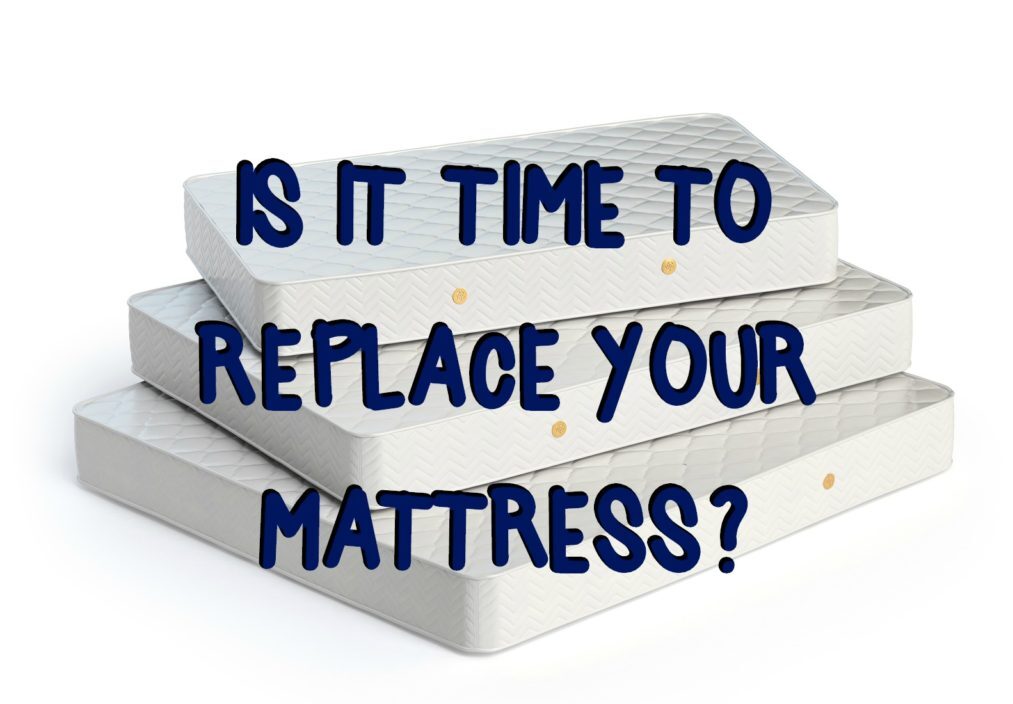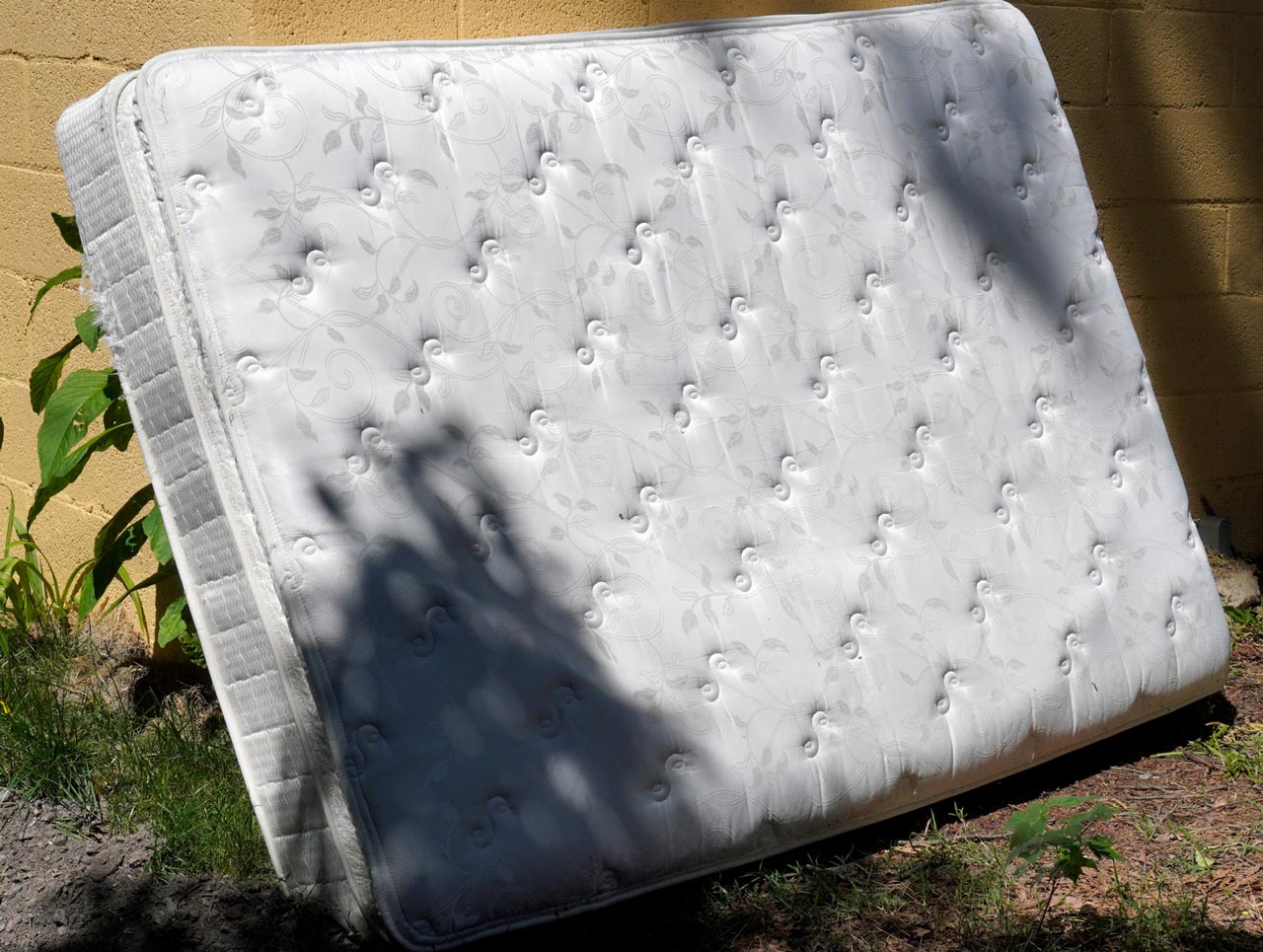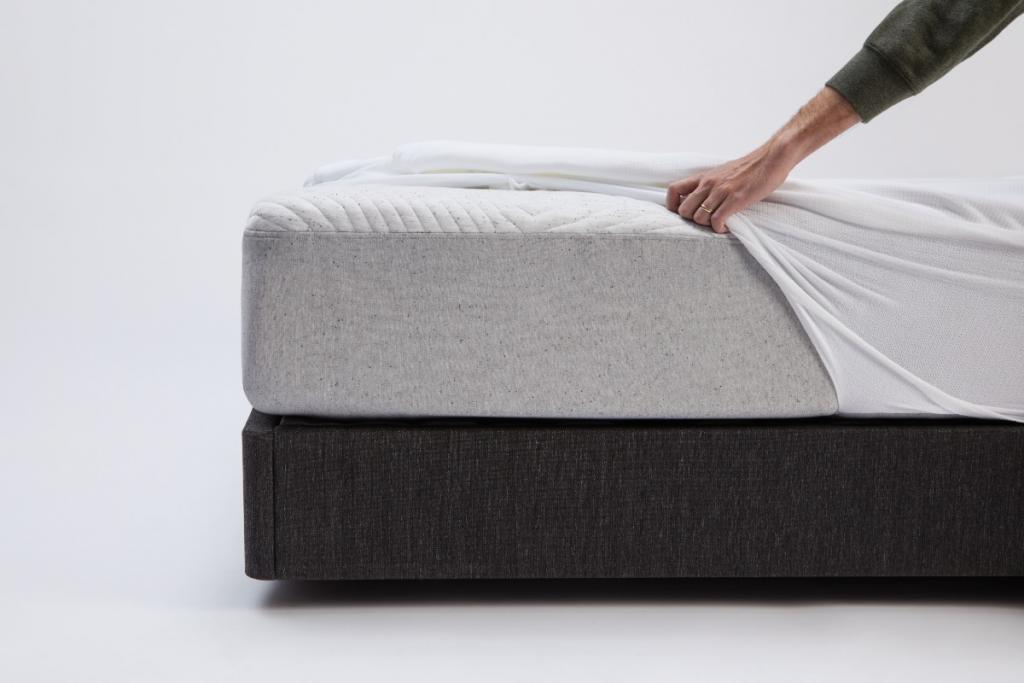If you're like most people, you probably don't give much thought to your mattress. After all, it's just a place to sleep, right? But did you know that the average person spends about a third of their life in bed? That's a lot of time spent on a single piece of furniture. And just like any other piece of furniture, your mattress will eventually wear out and need to be replaced. But how do you know when it's time to say goodbye to your old mattress and invest in a new one? Here are 9 signs that it's time to change your bed mattress.When to Replace Your Mattress: 9 Signs It's Time for a New Bed
Before we dive into the signs that it's time for a new mattress, let's address a common question: how often should you replace your mattress? The average lifespan of a mattress is about 7-10 years, but this can vary depending on the type of mattress, how often it's used, and how well it's taken care of. As a general rule of thumb, you should consider replacing your mattress every 8 years.How Often Should You Replace Your Mattress?
Now, onto the signs that it's time for a new mattress. Keep in mind that these signs may vary depending on the type and quality of your mattress, but they are good general indicators that it's time to make the switch.When to Replace Your Mattress: The Ultimate Guide
1. You wake up with aches and pains. One of the most obvious signs that your mattress is no longer providing the support and comfort you need is waking up with aches and pains. If you consistently wake up with a sore back, neck, or shoulders, it's a good indication that your mattress is no longer doing its job. 2. Your mattress is sagging or lumpy. A sagging or lumpy mattress is a clear sign that it's time for a new one. Over time, mattresses can lose their shape and support, leading to uncomfortable dips and bumps. If you notice your mattress is no longer flat and even, it's time to start shopping for a replacement. 3. You can feel the springs. If you have a traditional innerspring mattress, you may start to feel the springs poking through the top layer. This is a sure sign that your mattress is worn out and needs to be replaced. Not only is it uncomfortable, but it can also be a safety hazard. 4. Your allergies are acting up. If you suffer from allergies, your mattress could be making things worse. Over time, mattresses can accumulate dust, dust mites, and other allergens, which can trigger allergies and make it hard to get a good night's sleep. If you notice your allergies acting up, it may be time to invest in a new mattress. 5. You and your partner are rolling into the middle. If you share a bed with a partner, you may start to notice that you both roll into the middle of the mattress. This is a sign that the mattress is no longer providing proper support and is starting to wear out. Not only can this be uncomfortable, but it can also disrupt your sleep and cause you to wake up feeling tired and achy. 6. Your mattress is more than 8 years old. As mentioned earlier, the average lifespan of a mattress is about 8 years. If your mattress is older than this, it's definitely time to start thinking about replacing it. Even if it still feels comfortable, it may not be providing the support your body needs. 7. You're not sleeping as well as you used to. Have you noticed that you're tossing and turning more than usual? Or that you're waking up multiple times throughout the night? This could be a sign that your mattress is no longer providing the comfort and support you need to get a good night's sleep. If you find yourself constantly struggling to get comfortable, it may be time for a new mattress. 8. Your mattress is stained or smelly. A mattress is a breeding ground for bacteria, sweat, and other bodily fluids. Over time, this can lead to stains and unpleasant smells on your mattress. If you've tried cleaning your mattress but the stains and smells won't go away, it's time for a new one. 9. You're constantly waking up in a different position. Lastly, if you find yourself waking up in different positions than you fell asleep in, it could be a sign that your mattress is no longer providing proper support. As your mattress wears out, it can lose its ability to keep your body in a comfortable and stable position, causing you to toss and turn throughout the night.How Often Should You Change Your Mattress?
Now that you know the signs that it's time for a new mattress, here are a few tips to keep in mind when shopping for a replacement: - Do your research. With so many different types of mattresses on the market, it's important to do your research and find the one that's best for you. - Test it out. Don't be afraid to lay down on a mattress in the store to get a feel for it. After all, you'll be spending a lot of time on it. - Look for deals. Mattresses can be expensive, so keep an eye out for sales and discounts to help save some money. - Invest in a good quality mattress protector. A mattress protector can help extend the life of your mattress by protecting it from spills, stains, and allergens.When to Replace Your Mattress: Tips for Knowing When It's Time
In conclusion, while the average lifespan of a mattress is about 8 years, it's important to pay attention to the signs that it's time for a new one. By doing so, you can ensure that you're getting the best sleep possible and taking care of your overall health and well-being. So don't wait until your mattress is completely worn out – keep an eye out for these signs and start shopping for a new one when the time comes.How Often Should You Replace Your Mattress?
The Importance of Changing Your Bed Mattress

Why is it important to change your bed mattress?
 Many of us may not give much thought to our bed mattress, but it is an essential component of a good night's sleep. Over time, our mattresses accumulate dust, dead skin cells, and other allergens, making it a breeding ground for bacteria and dust mites. This can lead to various health issues, including allergies, asthma, and respiratory problems. Additionally, a worn-out mattress can cause discomfort and disrupt our sleep, resulting in fatigue and irritability. Therefore, it is recommended to
change your bed mattress every 8 to 10 years
to ensure a clean and comfortable sleeping environment.
Many of us may not give much thought to our bed mattress, but it is an essential component of a good night's sleep. Over time, our mattresses accumulate dust, dead skin cells, and other allergens, making it a breeding ground for bacteria and dust mites. This can lead to various health issues, including allergies, asthma, and respiratory problems. Additionally, a worn-out mattress can cause discomfort and disrupt our sleep, resulting in fatigue and irritability. Therefore, it is recommended to
change your bed mattress every 8 to 10 years
to ensure a clean and comfortable sleeping environment.
When should you change your bed mattress?
 The
recommended time to change your bed mattress
is every 8 to 10 years, depending on its quality and usage. However, if you have allergies or respiratory issues, it is advisable to change your mattress more frequently, around every 5 to 7 years. Signs that indicate it is time for a new mattress include sagging, lumps, and dips in the surface, as well as visible wear and tear. If you wake up with aches and pains or have trouble falling asleep, it may also be a sign that your mattress needs to be replaced.
The
recommended time to change your bed mattress
is every 8 to 10 years, depending on its quality and usage. However, if you have allergies or respiratory issues, it is advisable to change your mattress more frequently, around every 5 to 7 years. Signs that indicate it is time for a new mattress include sagging, lumps, and dips in the surface, as well as visible wear and tear. If you wake up with aches and pains or have trouble falling asleep, it may also be a sign that your mattress needs to be replaced.
How can a new bed mattress improve your sleep?
 Investing in a new bed mattress can have a significant impact on your sleep quality and overall health. A new mattress provides proper support and alignment for your body, reducing pressure points and promoting better sleep posture. This can alleviate back pain and stiffness, allowing you to wake up feeling refreshed and rejuvenated. A new mattress also offers improved comfort, as it is free from dust and allergens, creating a healthier sleeping environment. With a good night's sleep, you can be more productive, energetic, and focused throughout the day.
In conclusion,
changing your bed mattress at the recommended time
is crucial for your health and well-being. Not only does it provide a clean and comfortable sleeping space, but it also improves the quality of your sleep. So, make sure to regularly check your mattress and replace it when necessary to ensure a good night's sleep and a healthier lifestyle.
Investing in a new bed mattress can have a significant impact on your sleep quality and overall health. A new mattress provides proper support and alignment for your body, reducing pressure points and promoting better sleep posture. This can alleviate back pain and stiffness, allowing you to wake up feeling refreshed and rejuvenated. A new mattress also offers improved comfort, as it is free from dust and allergens, creating a healthier sleeping environment. With a good night's sleep, you can be more productive, energetic, and focused throughout the day.
In conclusion,
changing your bed mattress at the recommended time
is crucial for your health and well-being. Not only does it provide a clean and comfortable sleeping space, but it also improves the quality of your sleep. So, make sure to regularly check your mattress and replace it when necessary to ensure a good night's sleep and a healthier lifestyle.




























































